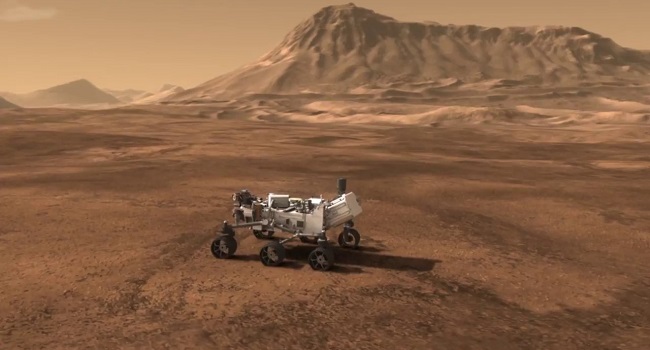International
NASA discovers life-sustaining oxygen on Mars

American space agency, NASA has found oxygen on Mars- a discovery which clearly puts the red planet ahead of others as the survival of humans and almost every other living thing on Earth depend on the vital gas.
Scientists said the discovery of ‘the gas many Earth creatures use to breathe’ is ‘baffling’, because it ‘behaves in a way that so far scientists cannot explain through any known chemical processes’.
Unfortunately, researchers don’t yet know whether the gas was produced by alien organisms or ‘inorganic’ processes, meaning this is not the smoking gun which proves the existence of life of Mars.
The oxygen was detected by the Nasa Curiosity Rover, which has spent seven years on the Red Planet carrying out tests as part of its search for extraterrestrial organisms.
READ ALSO: Microsoft develops cervical cancer diagnostic tool
It found a tiny trace of oxygen in the Martian atmosphere and found its concentration went up and down as the seasons changed a discovery that ‘implies that something was producing it and then taking it away’.
‘We’re struggling to explain this,” said Melissa Trainer, a planetary scientist at Nasa’s Goddard Space Flight Center who led the research.
‘The fact that the oxygen behavior isn’t perfectly repeatable every season makes us think that it’s not an issue that has to do with atmospheric dynamics. It has to be some chemical source and sink that we can’t yet account for.’
Join the conversation
Support Ripples Nigeria, hold up solutions journalism
Balanced, fearless journalism driven by data comes at huge financial costs.
As a media platform, we hold leadership accountable and will not trade the right to press freedom and free speech for a piece of cake.
If you like what we do, and are ready to uphold solutions journalism, kindly donate to the Ripples Nigeria cause.
Your support would help to ensure that citizens and institutions continue to have free access to credible and reliable information for societal development.
























